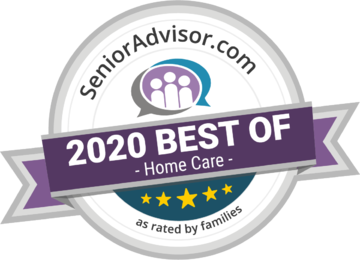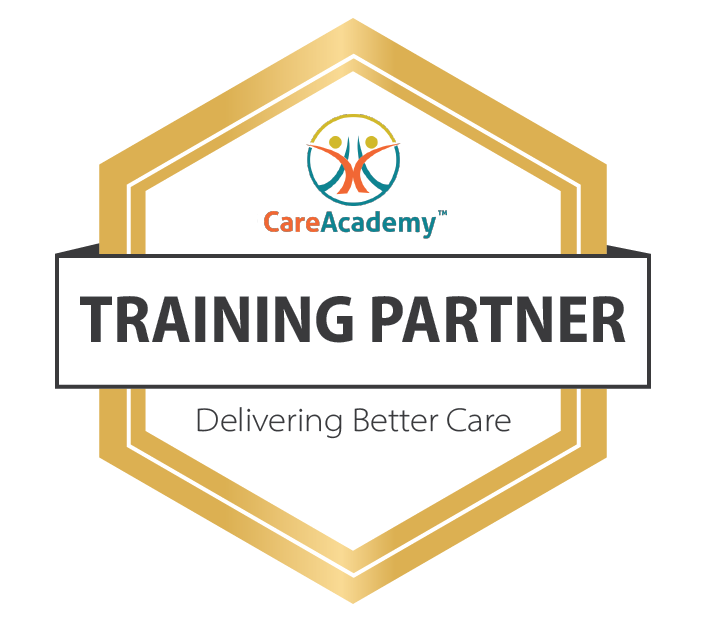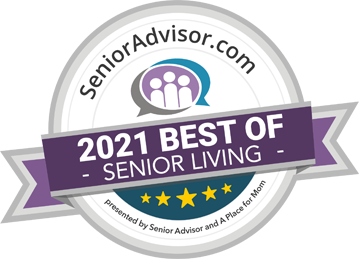Welcome everybody to the Wellsprings Home Care Podcast. I’m your host, Justin Currie, and I’m here with my two four-legged co-hosts, Goose and Remington, so if they make a little noise in the background, I’m sorry.
Wellsprings Home Care is located in Exton, Pennsylvania and we’re serving the areas of Chester County, Montgomery County and Delaware County.
We’re pretty excited to announce that we’re a 2020 Best of Home Care Award Winner from SeniorAdvisor.com. And what that is it’s actually the top 2% – 3% of home care providers nationwide. So we’re really excited about that and we’re really happy about that and we’re really grateful for the team we have over here at Wellsprings.
And for those of you that don’t know, some of the services we offer here at Wellsprings are personal care services, which include things like the activities of daily living, like toileting, bathing, transferring. We offer live-in care, 24-hour care, personal hygiene assistance, Dementia and Alzheimer’s care which almost all of our Aides now are specially trained with Dementia care, and companionship is another thing that’s offered, whether it be in person or remotely. We offer a lot of different care plans for veterans and respite care which is essentially if you’re a family care giver helping out a loved one and you just need a break from time to time, maybe one day a week, we can come in and help out with that as well.
Another thing would be mobility assistance. So if you’re having a little bit more trouble moving around the house, ambulating, maybe you just came back from rehab with a hip replacement, we can offer a full transfer assist or just fall prevention where somebody is just on standby assist just in case.
Now that we’ve told you a little bit about who we are and what we do, I wanted to jump into what our podcast today is about, which is Coronavirus Advice for Seniors.
Obviously with seniors being the most vulnerable and susceptible population to this virus and Wellsprings Home Care predominantly working with seniors, with elderly, we wanted to address this situation and hopefully offer any advice we can. Now the statistics are actually eight out of 10 of the deaths reported in the U S have been adults 65 years and older, and I don’t think that comes as a surprise to anyone, obviously seniors are more susceptible and also those with underlying health conditions, which a lot of seniors have, so they’re the number one population we have to really keep safe during this time.
First off, we’re going to talk about if you’re a senior, you’re living at home, what can you do to help prevent this virus to help prevent exposure for yourself. The number one thing is stay at home if at all possible. We obviously don’t want you going outside anywhere exposing yourself. I’ve heard stories of seniors being at the grocery store and asking somebody to pick them up items, things like that, which is really great.
Here at Wellsprings we can help out with that. If you give us a call, we can work something out and help out with groceries or delivering supplies, or anything we can do to sort of help out. We drop off supplies on the steps so that there’s no human contact, and we sanitize as well when we are dropping off supplies.
Another thing you would do is just to wash your hands, you obviously want to be washing your hands frequently anytime you sneeze or maybe you use a tissue or you use the bathroom, anything along those lines you want to be washing after, even when you’ve made contact with high frequency surfaces. Things like door knobs, counter tops, those are the types of things when you touch, you want to make sure that you’re washing up after.
Another thing is what they call Social Distancing, which is essentially you want to be at least six feet away from someone, that’s as close as you’d want to be. Obviously, some people still like to get out and get exercise and things like that and there’s a lot of space out there, so you really don’t have to be right next to each other. So that’s a pretty easy one to do.
We had touched on that a little bit, but cleaning and disinfecting frequently touched surfaces, like I said, door knobs, countertops, desk areas, your dining room, table chairs, couches, chairs in the living room, TV remotes, things like that. We want to be sanitizing frequently. I know, I always sanitize my phone and even my wallet, my cards, things like that because when I’m out in public I am using those things, so we want to keep everything sanitized the best we can.
And another thing you can do is if you do have any symptoms of the virus, the number one thing you should do is call your healthcare provider immediately and get their take on things and find out, maybe they want you to come in for a checkup, maybe they can kind of analyze that over the phone. But, if there’s any worry or concern regarding that, you should definitely have yourself tested and try and get ahead of it if you have been exposed or if there is a problem. So those are sort of some of the things that we can do to help prevent it. They’re pretty obvious things, but a lot of people aren’t really following the rules. I think now that Governor Tom Wolf has actually issued a stay at home order, I think people are taking it a lot more seriously now, which is great. People are only going out for essential items. They’re only going out if they need health care, so really only the essentials, which is great.
The next thing we want to chat about is the stress and coping with the disease. Obviously everybody stuck at home, it’s we’re not used to that. It’s a little bit different for us. We can’t go out and get the supplies or the items we need at all times. But some of the things you can do to sort of help with that would be give yourself a break, especially from the news, you know, watching reading, listening to news stations. Obviously it’s all going to be negative information, it’s going to have an impact on your mood day to day. If you’re reading all that negativity day to day, it’s going to definitely affect your mood in the long run. I’m not saying don’t follow the news at all, but maybe limit your exposure to it and I think that’ll really help out.
You can do things like taking care of your body, so even doing little things like stretching, if you can exercise around the house or in the yard, meditation, eating healthy, well balanced meals, get plenty of sleep, avoid alcohol and drugs if possible. Another thing would be make time to sort of enjoy some activities that you like to do. Maybe you like playing cards, maybe you like being out in the yard gardening, things like that around the house. If you enjoy doing that, give yourself a little bit of a break and actually get out and enjoy some of the things that you might not usually have time or enough time to do.
And another thing too with we’re obviously living in the technology age, so connecting with your friends and family, that can either be by phone, I know it’s not as personable as being face to face with them, but phone and even pretty much every phone nowadays too has video chat. So you can free applications on your phone and you can chat with your family and friends and it’s a good way to kind of lessen that isolation.
One other thing that’s good to do is to sort of have a plan in place. If maybe you are seeing some symptoms or maybe you’re not feeling well, maybe somebody you’ve been in contact with tells you that they’ve been exposed, you want to have a plan for things like that. So that’s something you can do is really a consult with your healthcare provider. They’ll really point you in the right direction. They’ll be able to help you out on next steps to take. Also staying in touch, we had talked about talking to family, friends, neighbors, you know, anything like that you want to keep in contact with. You want to lessen that isolation and you want to make sure that people know that you are healthy or if you’re showing any symptoms that you’re going to be taken care of. So if you’re seeing any of the symptoms such as difficulty breathing, shortness of breath, persistent pain or pressure in the chest, if there’s any confusion, bluish lips or face or all sort of early warning signs of the COVID virus. So if you have any of these signs, be sure to call your healthcare provider right away.
So, in summary, there’s definitely a lot of different things that seniors can do to take precautionary measures and lessen that isolation and just keep themselves safe overall. So I really hope that advice was helpful and if you ever need anything regarding home care assistance or even advice on anything, don’t be afraid to give us a call anytime at 610-463-0880. Thanks for listening and we’ll see you again next time.



